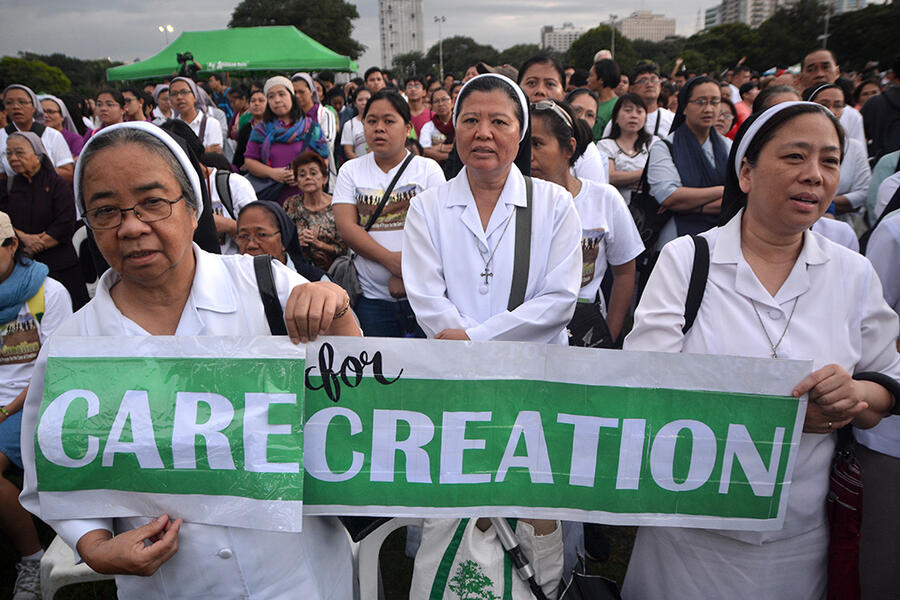
In honor of Women’s History Month and International Women’s Day on March 8th, the Yale Forum on Religion and Ecology recognizes the vital role of women who have led and continue to shape many of today’s most important conversations about ecology, justice, and peace.
This month, we highlight some of the many women’s voices featured in our free online courses, all hosted by Yale University on the Coursera online learning platform. While some resources draw on previously-created contributions from women authors and leaders, additional material was uniquely created for these online courses. Names with an asterisk indicate original course content:
Jane Goodall, the world's leading expert on chimpanzees, introduces the Interfaith Rainforest Initiative and shares how her experiences led to forest conservation within the context of animal welfare (Introduction to Religions and Ecology, Week 6).
Wangari Maathai, the first environmentalist and first African woman to win the Nobel Peace Prize, reflects on spiritual values that inspired her to lead the historic women-led tree planting movement throughout Kenya (Indigenous Religions and Ecology, Week 6).
Vasudha Narayanan, professor of religion and scholar of Hindu traditions, writes about sacred trees in temples, rivers as sites of devotion and pollution, and how women uniquely address environmental issues in India (South Asian Religions and Ecology, Week 4).
Chen Xia*, professor of of Chinese philosophy and religions in China, teaches about the “green” or environmental aspects of Taoism within the context of ecological civilization (East Asian Religions and Ecology, Week 5).
Huda Alkaff, ecologist and environmental educator, discusses her decades-long work connecting Islamic values with environmental justice and how this facilitates interfaith collaboration on issues such as energy and water conservation (Western Religions and Ecology, Week 8).
Melanie Harris*, professor of black feminist thought and womanist theology, provides an introduction to eco-womanism within the context of ecological memory, African cosmologies, and the importance of earth-informed spirituality in Christian religious traditions (Christianity and Ecology, Week 7). See below for an excerpt from her interview.
Designed by Yale University for learners from a wide range of backgrounds, these online courses focus on religious teachings and practices within the context of ecological wellbeing. While all can be taken together, each course is self-contained and can be taken out of order or on its own. Every course can be audited for free, and the step by step “How to Audit” guide can be found here. We encourage you to sign up for one or more of these courses.
